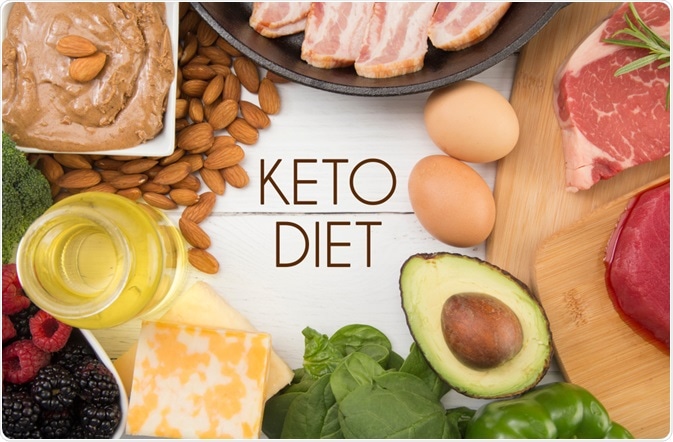The ketogenic diet is usually used as an alternative therapy for children with drug-resistant epilepsy, but it is also occasionally practiced in the management of some other health conditions.

Image Credit: P Maxwell Photography / Shutterstock.com
This diet is the first-line treatment for some metabolic diseases and can also be an alternative treatment for many other conditions. There are varying levels of evidence to support the use of the diet for these conditions. In some circumstances, the ketogenic diet may be harmful to the individual patient and is contraindicated for use.
Children with drug-resistant epilepsy
The ketogenic diet is most commonly indicated for children with epilepsy who have tried and failed treatment with two to three anticonvulsant medications.
This recommendation is based on the probability of success, which is approximately 10%, that an alternative anticonvulsant medication after two have failed. As the chance of success is so low, the ketogenic diet is often the preferable option that will offer the most benefit.
The diet may be considered earlier, even before pharmacotherapy in some cases, for particular health conditions, including:
- Dravet syndrome
- Infantile spasms
- Myoclonic-astatic epilepsy
- Tuberous sclerosis complex
Metabolic diseases
There are also several other health conditions for which the ketogenic diet is recommended as a first-line treatment. These include:
- Pyruvate dehydrogenase (E1) deficiency
- Glucose transporter 1 deficiency syndrome
These congenital metabolic diseases prevent the body’s ability to use carbohydrates as an energy source and, therefore, have a higher dependence on ketone bodies as an energy source.
Other conditions
Some health professionals also claim there is a place for the ketogenic diet in the treatment of various other conditions, such as:
- Autism
- Depression
- Migraine
- Polycystic Ovary Syndrome
- Diabetes mellitus type 2
- Amyotrophic lateral sclerosis
- Alzheimer’s disease
- Parkinson’s disease
Small improvements in these conditions have been noted in some cases, although there is insufficient evidence to recommend this diet as a therapeutic choice. The ketogenic diet may also be protective in patients with traumatic brain injury, stroke, and cancer.
Contraindications
The ketogenic diet is contraindicated in patients with the following health conditions:
- Pyruvate carboxylase deficiency
- Porphyria
- Fat metabolism disorders
If an individual is unable to metabolize fatty acids to produce ketone bodies as an energy source, they must rely on carbohydrates as their primary fuel. If these individuals were to follow the ketogenic diet, their bodies would be forced to consume stored protein to gain energy, which will eventually lead to ketoacidosis and possibly fatal outcomes.
The ketogenic diet is not usually recommended for adults with epilepsy. The National Institute for Health and Clinical Excellence in the United Kingdom advises against the use of this diet to manage epilepsy in adults.
However, approximately one in three centers that focus on the treatment of epilepsy occasionally recommended the diet for use by adult patients. In some cases, variants of the ketogenic diet with fewer restrictions on carbohydrate intake are considered more beneficial for adolescents and adults.
Although it is not absolutely contraindicated, children with a focal lesion that is likely to be responsible for causing the seizures are likely to benefit more from surgery than the implementation of the ketogenic diet.
References
Further Reading
Last Updated: Mar 18, 2021